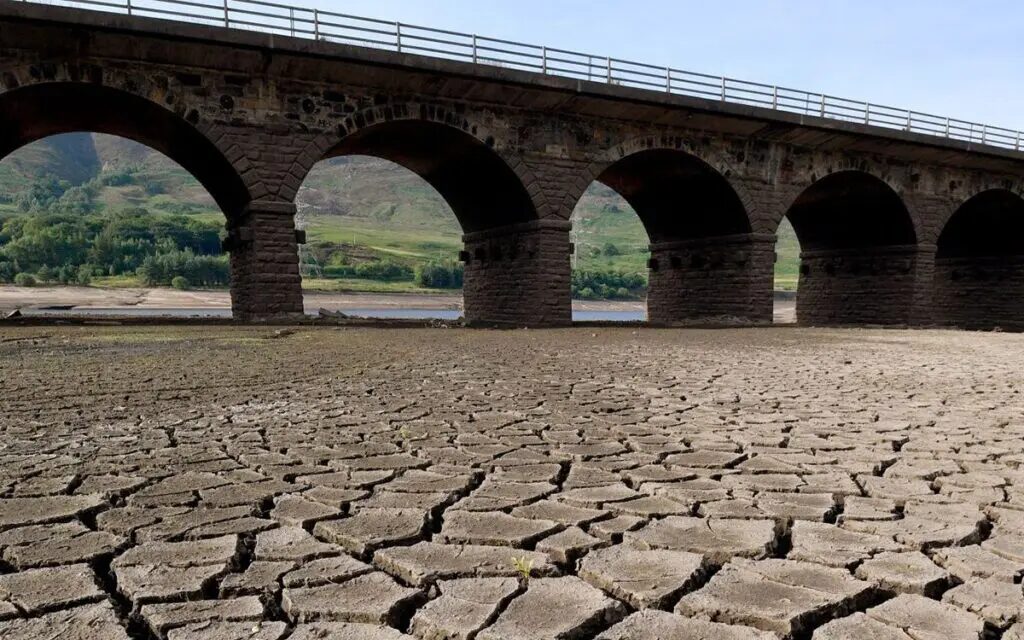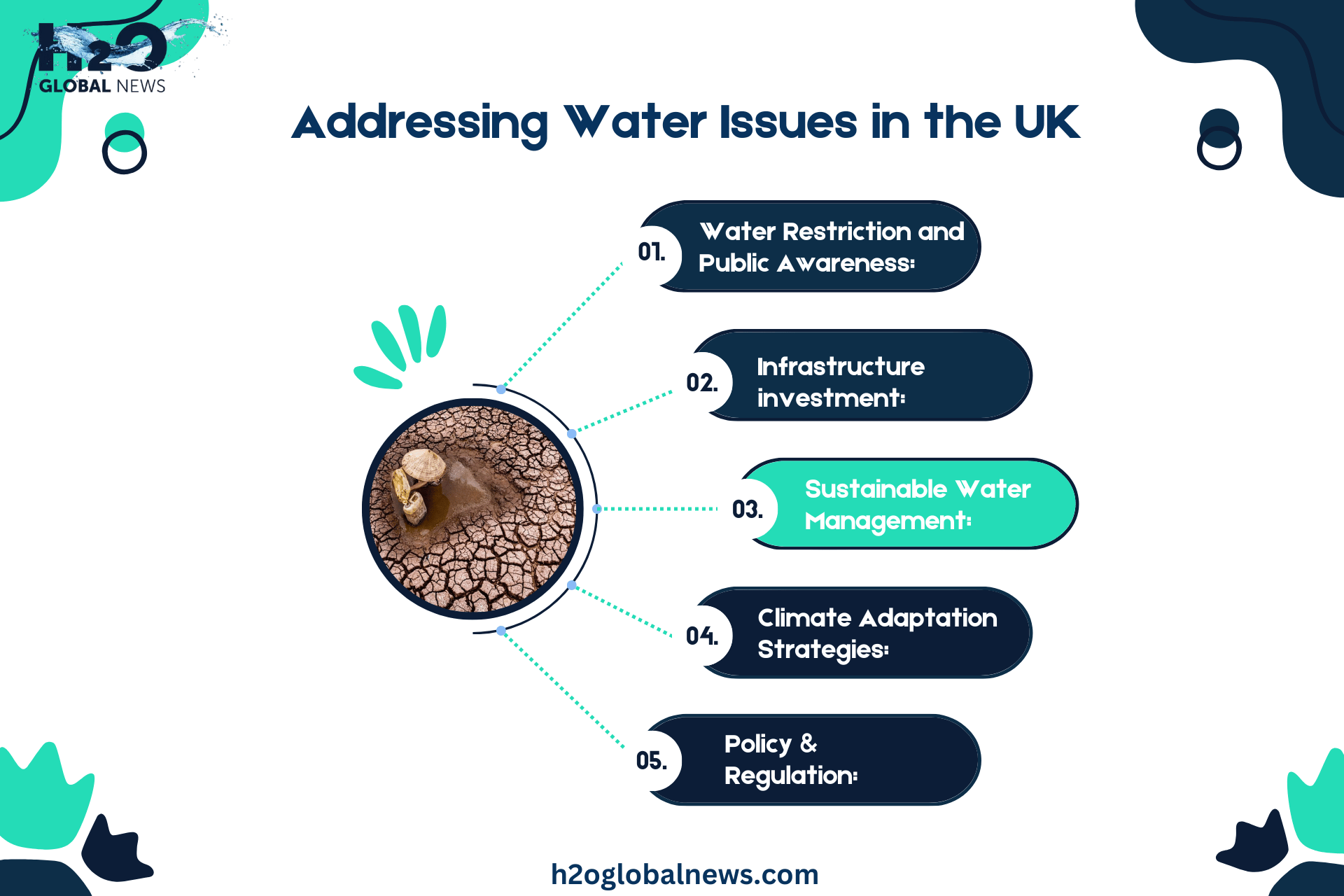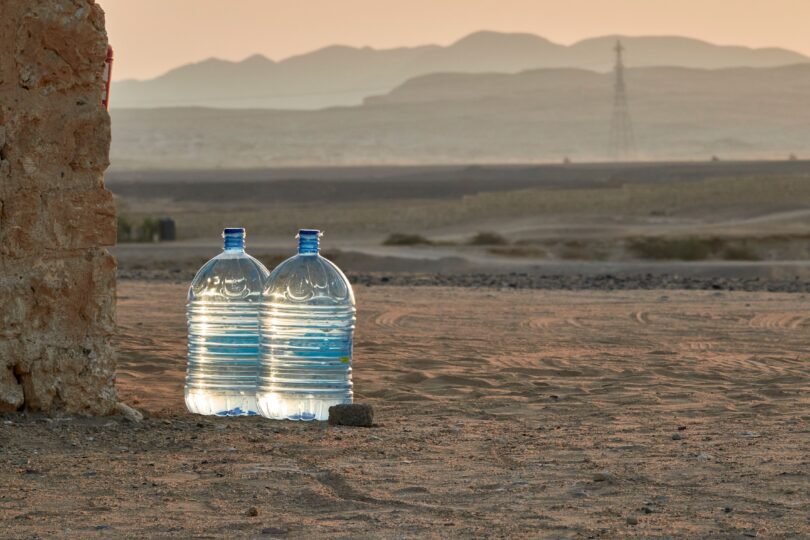The United Kingdom, known for its wet and rainy climate, faces a significant water issue. The rising water shortage in the UK, caused by climate change, population expansion, and mismanagement, affects daily life and the country’s economy. As you turn on the tap for a glass of water, it’s easy to take for granted that water will always flow freely. However, water shortages are becoming an increasing threat as population growth, climate change, and aging infrastructure strain our water systems. This article examines the reasons, implications, and potential solutions to the UK’s rising water problems.
Understanding UK Water Shortages
The Reality of Water Scarcity in the UK
Despite regular rains, the UK is experiencing a worsening water shortage. Drought conditions hit portions of England in 2023, causing water restrictions and raising concerns about water availability. With increased demand and uneven rainfall patterns, experts believe the situation will worsen in the following years.
Causes of the Drought and Water Shortages
1- Climate Change
Climate change has changed the UK’s conventional rainfall patterns. Summers are getting hotter and drier, resulting in more extended periods without rain. Conversely, excessive rainfall during the winter months frequently results in water outflow rather than reservoir replenishment.
2- Population growth and urbanization
An increasing population strains limited water resources. Urbanization exacerbates water difficulties in the United Kingdom by limiting the permeable land available for groundwater recharge.
3- Aging Infrastructure
The UK’s water distribution network needs to be updated, with leaking pipes losing billions of liters yearly. This inefficiency contributes considerably to water scarcity in the United Kingdom.
4- Inefficient Water Use
Overusing water in homes, industries, and agriculture exacerbates the situation. Many locations lack effective water-saving methods, which could help reduce resource constraints.
Projected Impact of the Drought on UK Households
The severity and longevity of drought conditions can significantly impact households across the UK. Residents should prepare for the potential effects of ongoing water shortages:
Restrictions on Water Usage
As reservoir and aquifer levels decrease, water companies may need to enforce temporary usage bans or restrictions to conserve supply. This could limit watering gardens, washing vehicles, and filling pools. Households should follow any guidelines issued to avoid penalties.
Higher Water Bills
Prolonged droughts often lead water companies to increase rates to offset higher operating costs and investments in new infrastructure. Bills may rise steadily over the coming years, straining household budgets. Some companies offer assistance programs for customers facing financial hardship.
Damage to Gardens and Wildlife
Lack of rain and limited water usage will impact gardens, lawns, and the surrounding wildlife. Expect increased die-off of plants, lawns, and trees on properties. Wildlife like birds, small mammals, and insects may migrate to areas with more plentiful food and water sources. Homeowners should consider adjusting landscaping to more drought-resistant native plants.
The impacts of sustained water shortages in the UK can be far-reaching, but preparing now can help mitigate future effects. Following all guidelines set by local water companies, adjusting water usage, and adapting landscaping are necessary steps households can take. By working together, residents can conserve this critical resource and ease the severity of drought conditions over the long term.
How bad will it get?
The Impact of UK Water Problems on Daily Life
Water shortages could result in broad restrictions, such as bans on non-essential water uses like gardening and car washing. In extreme instances, communities may experience lower water pressure or temporary supply interruptions.
Economic consequences
A water shortage in the UK endangers industries such as agriculture and energy generation. Crops that rely on irrigation may fail during droughts, and water scarcity may hamper power plant cooling processes.
Environmental Degradation
Reduced water levels in rivers and reservoirs damage aquatic ecosystems. Drought conditions can lead to habitat loss for fish and other species, further damaging biodiversity.
Water Restrictions Being Imposed Across the UK
As water levels in reservoirs and rivers drop to critical levels across the UK, water companies have started imposing restrictions on water usage to conserve supply.
Water restrictions UK
Here are some restrictions being imposed in the UK
Hosepipe Bans
Many water companies have issued temporary hosepipe bans, also known as sprinkler bans. These forbid using hosepipes or sprinklers in water gardens, washing vehicles, or filling swimming pools. The goal is to reduce unnecessary water usage by 10-15% during drier summer months. Some areas currently under hosepipe bans include:
- South East Water (Kent and Sussex)
- Thames Water (London and Thames Valley)
Metering and Leakage Reduction
Some water companies are accelerating the installation of water meters in homes to encourage water efficiency. Meters allow companies to charge customers based on the amount of water used, incentivizing conservation. Metering trials have shown that households can cut water use by up to 15% after installing meters.
Companies are also trying to detect and repair leaks in their pipe networks. On average, 20% of treated water in the UK is lost due to leaks, so fixing leaks can significantly boost available supply. Thames Water, for example, has committed to reducing leakage by 15% over the next five years through improved monitoring and repair programs.
If conditions remain dry, more stringent restrictions may be implemented. Complete bans on non-essential water use, water rationing, or drought orders to force further water savings may be necessary to safeguard the water supply for essential needs. But if we all do our part to curb excessive water usage, especially over the summer, we can mitigate the need for more extreme measures. Every drop counts, so be water-wise.
Addressing Water Issues in the UK
- Water Restriction and Public Awareness Drought recovery requires temporary water restrictions. However, long-term solutions necessitate growing awareness about water conservation in families and industries.
- Infrastructure investment Modernizing the UK’s old water infrastructure is critical. Fixing leaking pipes and building new reservoirs will result in more effective water storage and delivery.
- Sustainable Water Management reduces demand and encourages water-saving initiatives, such as rainwater collection and water-efficient appliances. Industries and agriculture should adopt new water management practices.
- Climate Adaptation Strategies The government must invest in climate adaptation initiatives, such as enhancing floodplains to store extra rainfall after severe rains. Long-term planning is required to manage the simultaneous hazards of flooding and drought.
- Policy & Regulation Regulators should enforce stricter policies to prevent over-abstraction of water from rivers and aquifers. Collaborative efforts between policymakers, utility companies, and communities are vital for sustainable water usage.

Conclusion
With water usage and demands increasing alarmingly, significant lifestyle changes are inevitable for UK residents if sustainable solutions cannot be implemented immediately. As the climate continues to change and the population expands, the strain on limited natural resources will intensify. Comprehensive strategies around reducing overall consumption, improving infrastructure to minimize waste, and securing new supply sources must be prioritized to avoid severe economic and public health consequences. While the challenges ahead are substantial, meeting basic human needs is not optional. A sustainable water future for the UK can be achieved with shared sacrifice and political will.
FAQs
1- How does climate change affect UK water scarcity?
Climate change has disrupted rainfall patterns, leading to prolonged dry periods in summer and heavier, less effective rainfall in winter. This increases the risk of droughts and water scarcity.
2- How can individuals help reduce water shortages?
People can help by using water-saving devices, fixing leaks, reducing wasteful water use, and collecting rainwater for non-drinking purposes like gardening.
3- What is the government doing to address water issues in the UK?
The government is working on infrastructure improvements, encouraging water conservation, and implementing climate adaptation strategies to manage water shortages.







